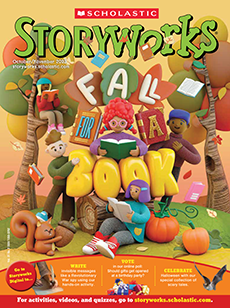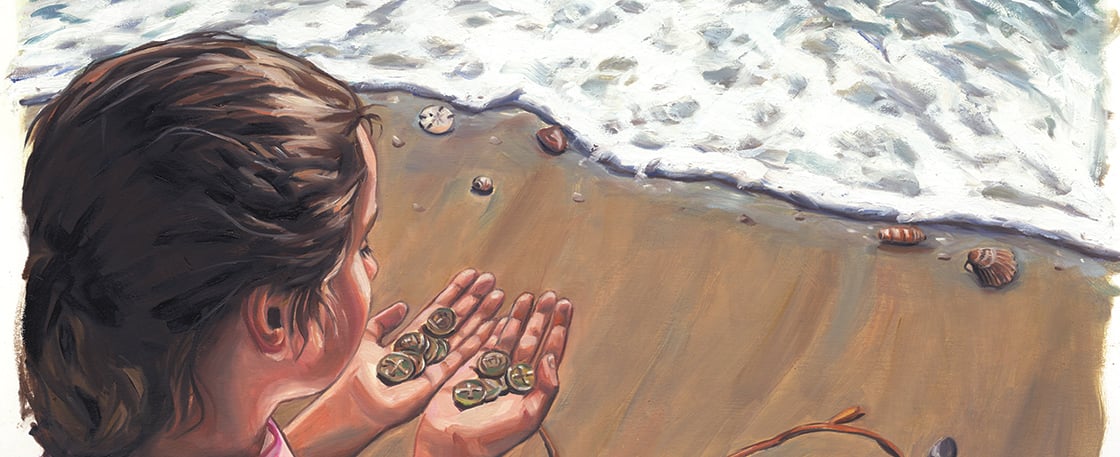Our annual beach vacations had always been enjoyably the same: the scent of salt and seaweed in the air, the steady sound of waves rolling onto the shore, the unchanging faded gray of the shutters on our family’s cottage. Year after year, I recognized certain seagulls by the splotches on their beaks and the patterns of their feathers—and I knew which “regulars” would steal my peanut-butter crackers off the beach blanket.
But this year, everything was different.
Nobody was on the beach but Trevor and me, probably because thick clouds, the color of milky tea, covered the sky. Our parents were still inside the rental house on the other side of the dunes, trying to figure out where to put the dishes in the unfamiliar kitchen cupboards. I used to always drink my orange juice out of the same chipped sailboat mug—one my grandma had bought the first summer she and my grandpa came to Hatteras. This morning, I’d gulped my juice out of a plain, clear glass.
It hadn’t tasted as good.
The water was rough, and I didn’t know this new stretch of beach, which was right on the edge of the National Seashore. The hurricane last fall had changed the shoreline. So instead of swimming, I squatted by a tide pool, watching a crab hobble across the sand.
“Laurel! Laurel! Come over here!”
I pushed myself up and raced toward the sound of my big brother’s voice. He was standing in the middle of some debris near the water’s edge.
“What is it?” I stopped, panting, next to a big chunk of wood. It was about the size of a boogie board.
“A piece of wood from a shipwreck,” Trevor said with complete confidence.
I bent over for a closer look. Yesterday’s waves must have left it on the beach for us to find.
“I think you’re right, Trevor,” I whispered excitedly. In all the years of beachcombing at the old cottage, we’d never found anything like this.
Trevor tiptoed carefully around the debris. He gasped.
“What?” I pushed salty strands of hair off my face and moved closer.
Trevor rubbed something on his T-shirt. He held out his cupped palm, trembling a little. In it was a thin metal circle, greenish with a hint of gold. “Laurel . . . I think it’s treasure.”


